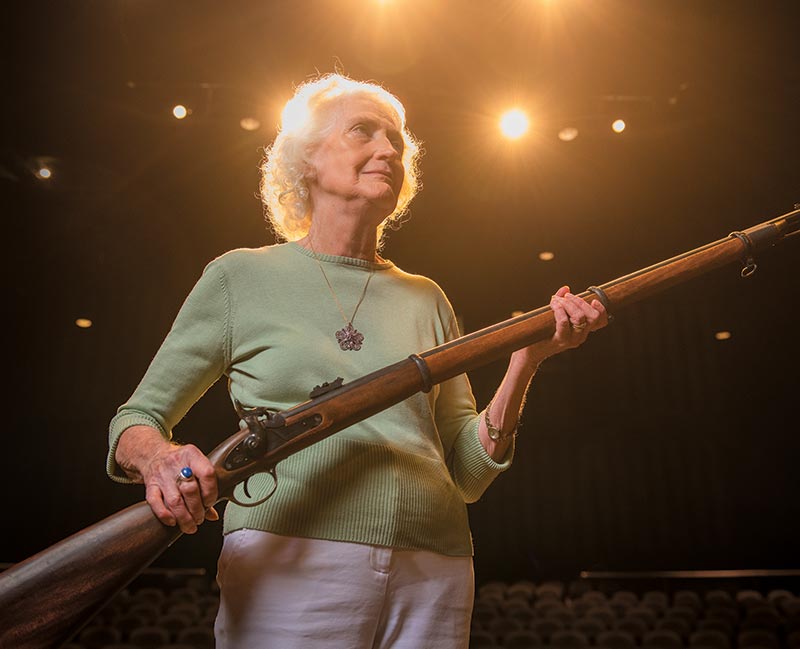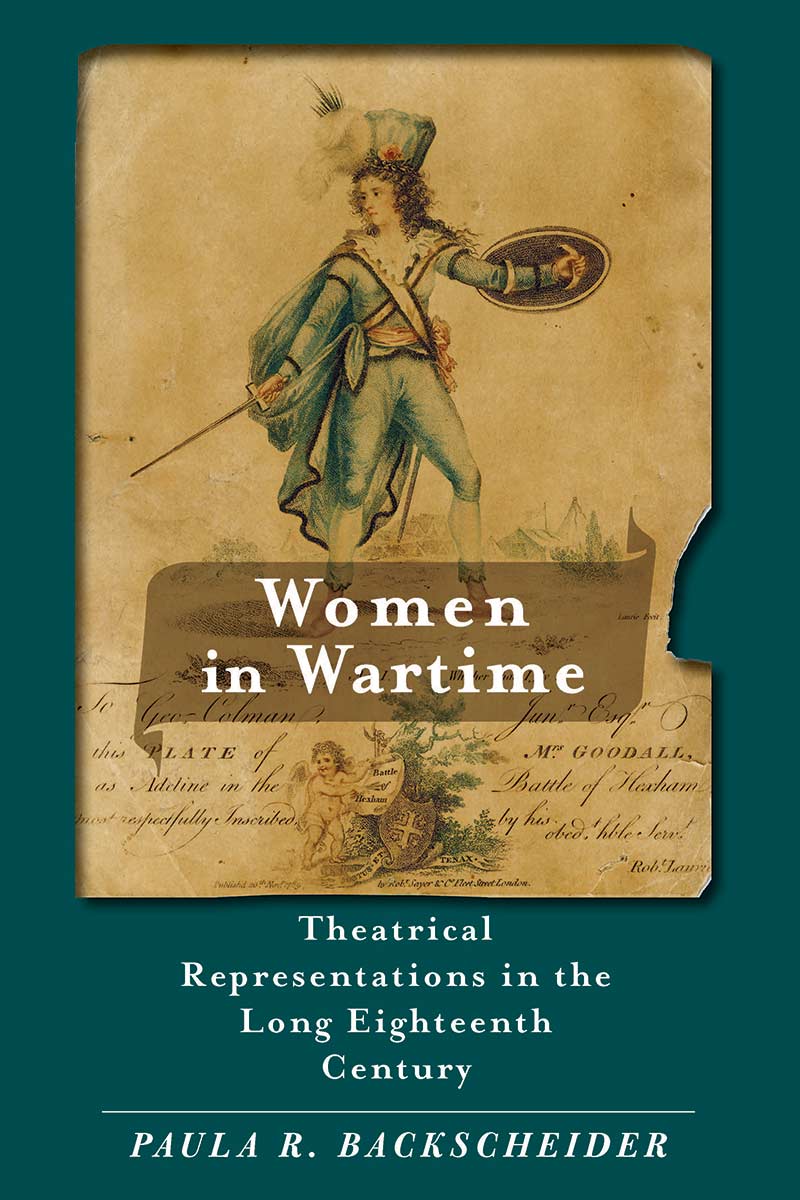Research Magazine


It was an unusual process, Dr. Paula Backscheider readily admits, likening the writing of her latest book to an archaeological dig in which she didn't know exactly what her discoveries meant until she had assembled the pieces she'd unearthed.
Backscheider, the Philpott-Stevens Eminent Scholar in Auburn’s Department of English, found the writing of Women in Wartime: Theatrical Representations in the Long Eighteenth Century to be a process of discovery, as she examined some 120 plays (including, through contemporaneous reviews, some that don’t even exist in print) and noticed subtle shifts in how and what they communicated about women over time.
This archive of stage plays, many long-forgotten, both reflected and shaped popular opinion on England's involvement in one bloody clash after another. War after war filled the “long 18th century” (approximately 1688 to 1815), when England found itself torn between an aversion to keeping a large military apparatus in place and the simultaneous need to defend itself on multiple fronts and on short notice.
“In a way, the book is very simple — it explores how the theatre found out what they could do with actresses,” Backscheider explained. As women found their way onto the stage during this volatile period, playwrights and theatre managers discovered both what women’s acting capabilities were and what conventions of plot could be established, or flouted, through their performances.
Rebel literature
“In the 18th century, it’s very, very hard to find writers who weren’t arrested, most commonly as they battled for free speech, religious tolerance or legal reforms,” Backscheider said. “And they wrote in all genres as they tried to reach people; they invented propaganda, they modernized political caricature. And they invented popular mass culture.” She explained that “the plays I write about are an example of the earliest popular culture. Three thousand people would pack in to see a play night after night after night at each theatre.”
Backscheider added, “I’m really interested in popular culture and the way it sways people’s opinions, and the way we are searching wildly for a story that helps us live.” Throughout the plays she covers in Women in Wartime, the story that emerged was one intended to unify England for war, fan the flames of patriotism, normalize military recruitment efforts and build up the support and infrastructure necessary for the nation to survive a seemingly endless stream of global conflicts.
Backscheider noted that, on the one hand, large numbers of women followed the traveling camps of military men in these times of battle and “were really the infrastructure.” She added, “They cooked, they foraged, they negotiated to buy chickens. They mended the men's clothes. They struck the tents and carried the gear. Some of them were teamsters. And so, before the professionalization of a modern army, they were the infrastructure.”
On the other hand, many women in the towns and villages of England during this period were more interested in keeping their loved ones out of harm’s way than in supporting war efforts. Recruiting parties would travel from place to place, seeking volunteers for military service or sometimes impressing them into it, only to be attacked by local women throwing rocks and bottles.
And therein lay the dilemma for England’s military establishment. Their mission was to recruit more personnel for combat, and they wanted the nation’s women to support and encourage the effort instead of hindering it. This is where the persuasive power of the day’s mass media — the theatre — came into play.
Backscheider noted that among the famous and not-so-famous plays she examined was a well-known and long-running hit, The Recruiting Officer, which features a woman disguised as a man and showing the men how to do the task of recruiting in smarter and kinder ways. It became a common theme, Backscheider explains in the book, for playwrights to use women characters to judge, admonish and — in so-called, cross-dressed “breeches parts” — even model masculinity for any men in the audience who might be hesitant to go off to war.
She explained that these ideas worked their way into plays over a period of about 125 years, with initial help from writers who had served in the military themselves and felt a need to report what they saw. “One of them was on a ship that the Dutch sank,” she said. “Interestingly enough, the first playwrights I have in my book were in the army that fought with Winston Churchill’s ancestor, Marlborough, in Spain and Flanders and Portugal. And so they had actually been in battles, and they talk in their plays about what the women did and what it was like to fight with Marlborough, what kind of general he was and how he revolutionized fighting,” she added.
Searching the margins

Discussing her methods for pulling together a project of this book’s complexity, Backscheider explained she “was looking for those kinds of invisible women, in the margins, in the backgrounds, in the parallel plot.” She visited London to dig up evidence of obscure plays and the public’s reaction to them. “I was reading newspaper reviews and diaries… I was really trying to bring back how the audience reacted and what they saw,” she noted.
“I had spent all those years syncing the plays with the wars, learning the structures of the plays, what characters were most important, their social classes, whom they married, what their personal and domestic concerns were and especially what national issues the plays engaged,” she explained. Backscheider would analyze how each play functioned within overarching narrative patterns, “letting the evidence speak to me,” she said, not certain until “very close to the end” of the process just what picture was emerging from the dots she was connecting. The endeavor took eight years, prompting Backscheider to add, “That’s another reason I love Auburn: you can do research of that magnitude and significance.”
Thinking ahead to what may come next in her research, she noted that she would love to explore more “little bits of forgotten history” that are relevant to what’s going on in the world today, to find more ways in which the plays she uncovered touch contemporary events. And as Women in Wartime and her previous scholarly achievements have demonstrated, when Backscheider digs, she digs deep.
Women in Wartime is scheduled for release in January 2022 and is available for preorder from online booksellers.

